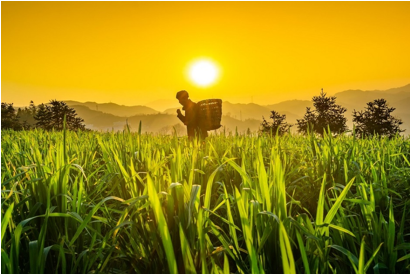آئی این پی ویلتھ پی کے
Azeem Ahmed Khan
Pakistan’s leading dryland research institute has produced more than 60 crop varieties and a range of water-saving technologies, highlighting its expanding role in strengthening resilience across the country’s rain-fed farming belt. “The Barani Agricultural Research Institute (BARI), Chakwal, has so far developed over 60 crop varieties, including wheat, groundnut, oilseeds, pulses and fruits, alongside technologies to conserve soil moisture and improve irrigation efficiency,” Director BARI Dr Nadeem Ahmed said in an interview with Wealth Pakistan.
Established in 1979 to tackle the unique farming challenges of the Potohar plateau, BARI has emerged as a multi-disciplinary hub working to transform Pakistan’s rain-fed agriculture through crop innovation, water-efficient technologies, and farmer capacity building. “The main purpose for the establishment of this institute was to tackle the issues related to farming communities in the Potohar region and to address the issues related to rain-fed agriculture,” he said.
Agriculture in the Potohar region is entirely dependent on rainfall, without an irrigation network like the canal systems in other parts of Punjab. “There was a great need to establish such an institute to address the issues related to crop productivity, yield enhancement, and water deficiency,” he explained. Since its establishment, BARI Chakwal has evolved into a multi-crop and multi-disciplinary research centre.
“We develop varieties for wheat, groundnut, oilseed, pulses, vegetables, and also different fruit crops, including high-value peach, grapes, pistachio, pecan nut, and avocado,” Dr Ahmed said. The institute is not only focused on crop development but also on improving water management. “We work on high-efficiency irrigation systems and develop various techniques to get maximum output using minimum amount of water,” he pointed out.
Dr Ahmed said BARI Chakwal also emphasises capacity building for scientists, extension workers, and students. “We provide them training through workshops and seminars for the dissemination of agricultural achievements to farming communities. We also provide technical assistance to farmers so they can benefit from our research outcomes and improve their livelihoods.”
The institute also supports students through research and internship programmes, he added. Among recent achievements, BARI Chakwal has taken major strides in promoting olive cultivation in the region. “We have achieved remarkable progress in olive propagation and dissemination. Potohar has now become the centre of excellence for the development of olive,” Dr Ahmed said.
He described the introduction of olive cultivation as a “great landmark for the institute”, noting that BARI has built a complete value chain for olive production and propagation. The institute has also introduced blackberry as a high-value fruit crop to provide small farmers with new income opportunities. “We introduced blackberry to provide farmers a short window to get maximum profits from minimum land,” Dr Ahmed said.
The Punjab Barani Tract includes Attock, Rawalpindi, Jhelum and Chakwal districts and parts of Sialkot, Narowal, Gujrat, Khushab, Mianwali, Jhang, Bhakkar, Layyah, DG Khan and Rajanpur districts. The tract stretches across 14 districts, making it one of the province’s most diverse ecological zones and forming its backbone of dryland agriculture and rangeland economy.
The Barani tract also contains around 75% of the province’s forest resources and some 10 million acres of high-quality rangeland, considered among the best in the world. Experts believe these rangelands can be upgraded for grazing and fodder production to support livestock growth.

Credit: INP-WealthPk



